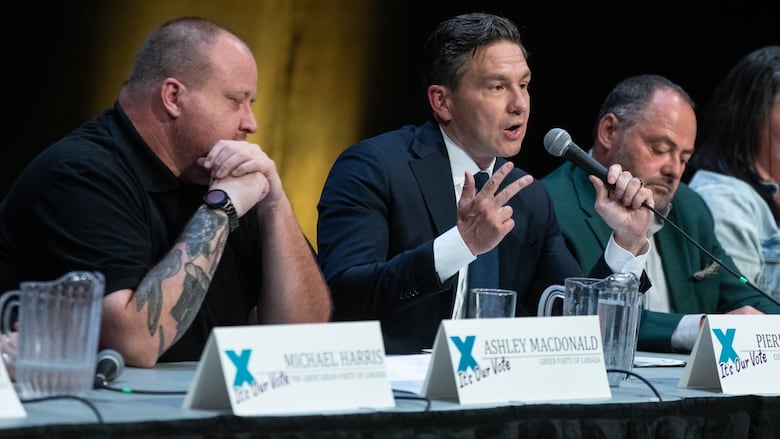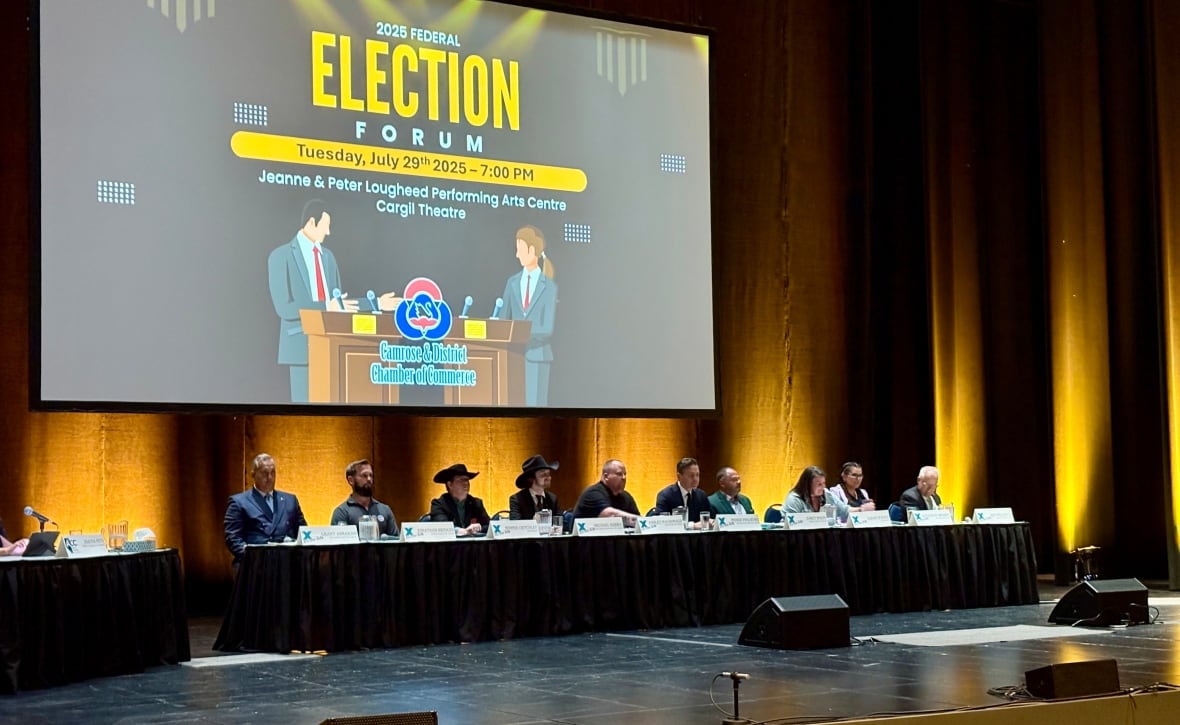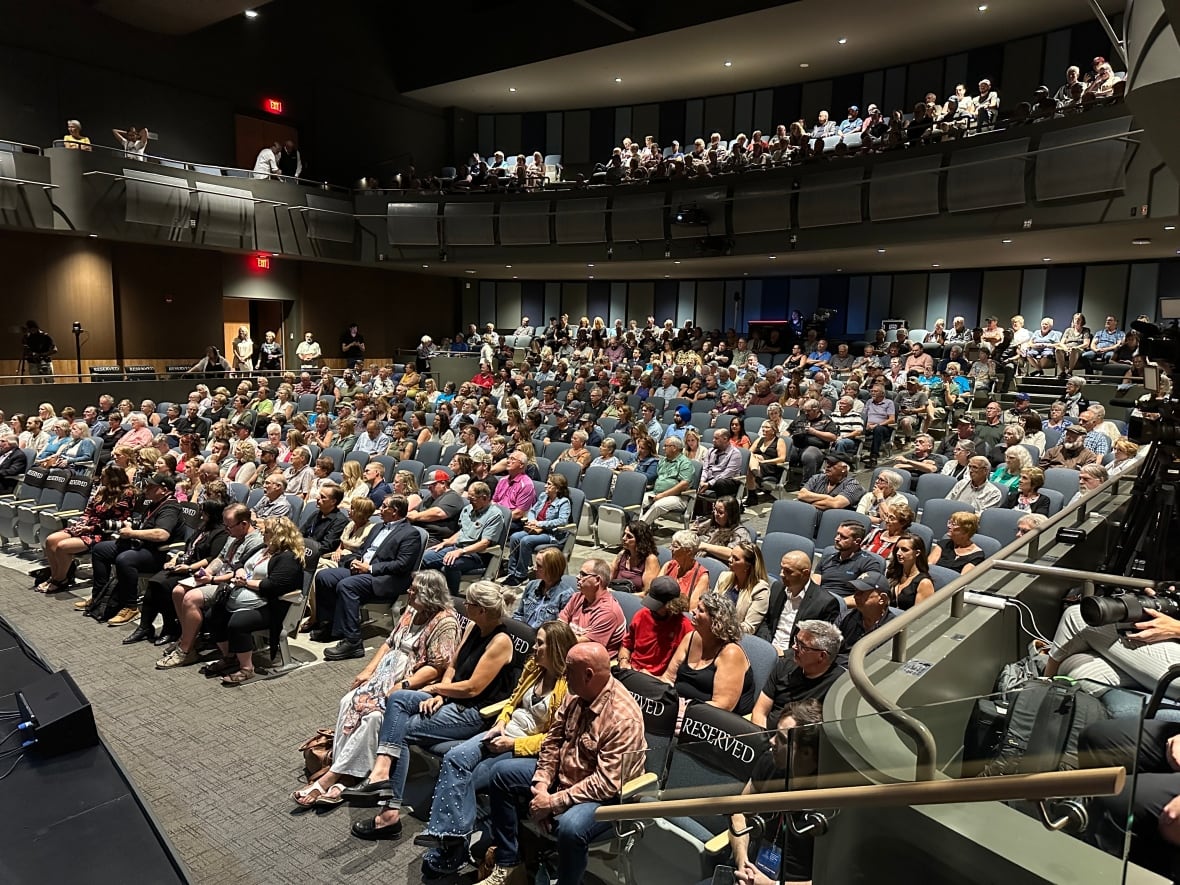Debate wraps for candidates vying for seat in Alberta byelection featuring Poilievre
About 210 candidates registered to run as of Monday

A crowd of hundreds of people cheered and clapped as 10 candidates vying to represent Battle River-Crowfoot in the House of Commons faced off Thursday night in the riding's largest municipality.
Conservative Leader Pierre Poilievre was among the candidates at the event — which was livestreamed here — hosted by the Camrose & District Chamber of Commerce ahead of the Aug. 18 byelection.
"My mission here is to give national leadership to the issues that are of local importance," Poilievre told the sold-out audience.
Many of his supporters were outside the venue before things got underway, carrying signs with his name.
Poilievre is looking to win in the sprawling eastern Alberta riding after he lost his long-held Ottawa seat of Carleton in the April general election.
The moderator kept a tight schedule, cutting off the microphones of anyone who ran over their allotted time as the candidates answered a range of questions submitted by the public about the economy, health-care privatization, electoral reform and immigration.
The candidates occasionally took aim at Poilievre, particularly for the fact that he does not live in the riding.
Liberal candidate Darcy Spady introduced himself by saying, "I'm from Three Hills, and I don't want to be prime minister" — a line that elicited chuckles from the crowd and from Poilievre when he repeated it.
Spady said he wanted to bring local issues to the government caucus.
The writ was dropped last month after Conservative Damien Kurek, who handily won the seat in April's vote, stepped down so Poilievre could run.

About 210 candidates were registered to run as of Monday on Elections Canada's website, including Spady, the NDP's Katherine Swampy, Independent Bonnie Critchley and dozens of others sponsored by the Longest Ballot Committee protest group.
The Longest Ballot Committee has been organizing dozens of candidates to run in byelections in recent years, resulting in metre-long ballots that have caused delays in vote counting and confounded some voters.
The group wants to put a citizens' assembly in charge of electoral reform and says political parties are too reluctant to make the government more representative of the electorate.
The previous record of 91 candidates occurred twice in the past year: during a byelection in LaSalle-Emard-Verdun last September and Carleton during the general election this past spring.
Elections Canada says adapted ballots requiring electors to write out the name of their preferred pick will be available at polls given the unusually long list of candidates.

